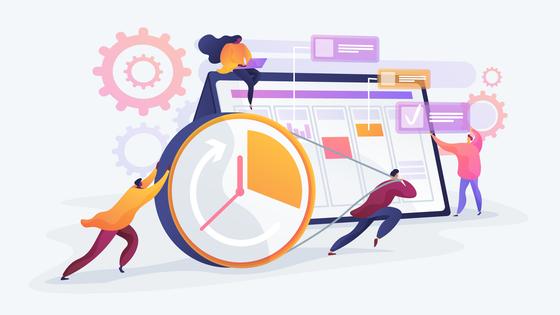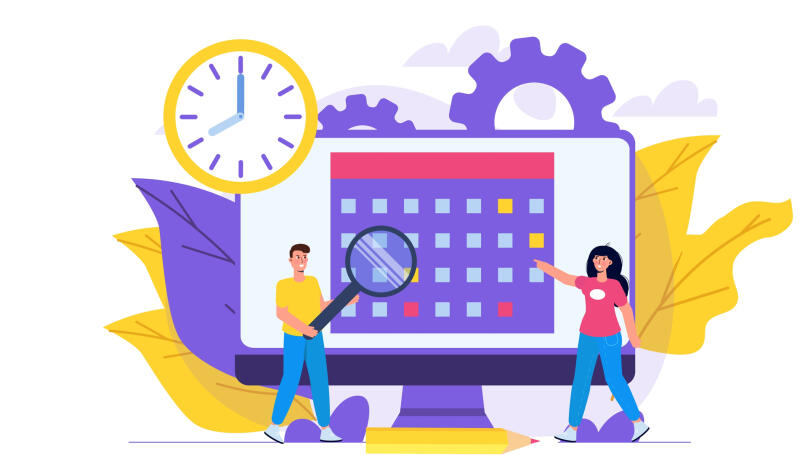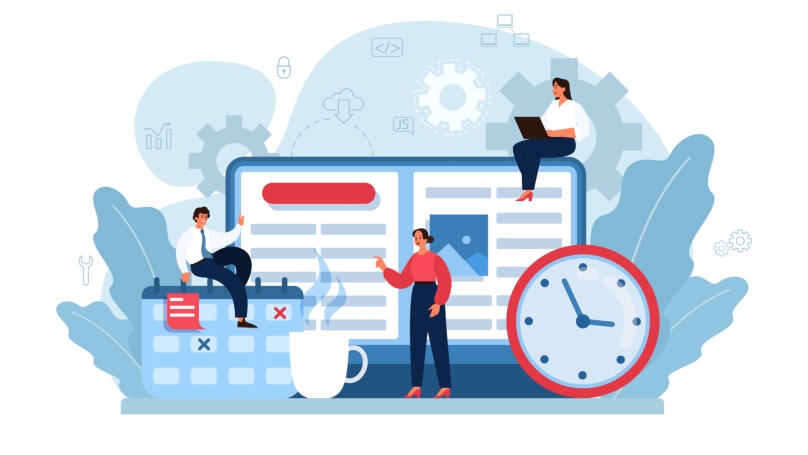Personal Effectiveness Rules: How to Succeed in Life and Work
It is widely believed that success in your business, career and personal life is the result of luck, fate and inherited abilities of an individual.

Surely, you know dozens of stories of famous entrepreneurs, talented actors, musicians, and millionaires who lifted out of the very bottom, sometimes with no education or family help. How did they manage to rise to such heights? The secret is in their personal effectiveness! Let's find out what personal effectiveness is and how it can be developed and used in business, career, hobby and personal life.
What is personal effectiveness?

Usually, people gain success after they suddenly realize that they were just wasting their time. Personal effectiveness is a set of skills that enable a person to quickly learn new information, complete the maximum amount of tasks in a short period of time, and obtain the optimal result without getting exhausted. Depending on who you are and what you aim for, there are three kinds of effectiveness: personal effectiveness of a manager, of an employee and of an individual.
Personal effectiveness of a manager
An effective manager is a person who is able to build up a highly effective team and manage it so that it would deliver all established business goals or indicators on time. In this way, it is important that the team and its manager would not burn out, fight, or give up halfway.
A manager should possess quite a wide range of personal effectiveness skills:
- Great responsibility - the self-discipline of the manager and his ability to demand discipline from subordinates.
- Rationality - managing your personal and work time.
- Commitment to excellence - continuously increasing your professional and management skills.
- High level of emotional Intelligence - well-developed intuition, the ability to clearly and consistently express your thoughts and get them across your team, profound knowledge of human nature, the ability to motivate and inspire people, delegate tasks, distribute loads, and control the whole working process to avoid crises.
- Assertiveness - the ability to lead people, resolve conflicts, and find the way out of difficult situations.
- Striving for more and the best - having the principal goal, dividing the way to it into some intermediate sub-goals yet never being satisfied by minor wins and constantly keeping in mind the future.
- Being inspired - loving your work, being aware of your position in the profession, suggesting your ideas and accepting the ones suggested by others.
The measure of the director's effectiveness is the commercial success of their company or project, which, in turn, is characterized by high profitability at minimal costs.
Personal effectiveness of an employee
An effective employee is the one who seeks to optimize their work and comes up with the best solutions for their daily tasks. Such people never waste their work time or procrastinate spending hours on the Internet; on the contrary, every hour of their workday will be spent for the benefit of themselves and the company.
Unlike a director, an employee can't be directly responsible for the commercial performance of a project or a company; however, in their area of responsibility, effective employees always do their best whatever this area is - sales, tech support, marketing, development etc.
Personal effectiveness skills a good employee must possess:
- Well-developed planning skills - such employees always have their to-do list prepared and know how to organize their work time effectively.
- Creativity and activism - they come up with an original solution, take the initiative, and suggest new methods of work.
- Self-confidence - they never hesitate to take on new tasks.
- Willingness to succeed - such employees take the KPI of their department or a company as if this company were theirs, intend to reach high results by all means they have at their disposal.
- Taking the right post - such employees are well aware of the circle of tasks they are assigned to perform in the company.
- Time value - they aim to do their work fast without sacrificing quality.
- Open-mindedness - they use new working methods and are not afraid of changes and innovations.
Personal effectiveness of an employee is most often assessed comprehensively. The criteria may be:
- Personal KPI - numerical indicators of effectiveness.
- OKR - key results synchronized with the ones of the team.
- Performance review - a survey conducted among the peers to find out how comfortable it is for them to work with that employee and whether they manage to reach common goals.
There are quite many evaluation methods; the key point, however, is that a highly effective employee would never agree to work without clear, transparent criteria. It is important for them to control where they are going and whether they are improving.
Personal effectiveness
It is a set of skills that help you to succeed in all areas of life - from getting better in your hobby to success in your love life. A really important thing for you to do is to establish your own criteria of personal effectiveness for further evaluation of your progress in your movement from small achievements to big victories.
They should be based on the skills of scheduling your personal and work life as well as of maintaining the work-life balance - the ability to divide your time between work and other aspects of life, whether those are family-related or personal interests.
Personal effectiveness consists of the following elements:
- self-development - constant work on yourself and striving to improve your personal and physical traits;
- planning - the ability to organize your time so that you could do all the tasks yet not get tired and reserve time for rest and entertainment;
- goal setting - the ability to highlight the bottom line of your dreams and plans, define your goals and achieve them;
- result-oriented work - bringing all tasks to the final result, trying to get maximum from each implemented task.
Checking your personal effectiveness

Try to correspond the following statements with your life and define to what extent they relate to you:
- You are always late: for meetings, for fitness, for work, for your mother's birthday, etc.
- It is hard for you to say how long it may take you to do this or that.
- By lunchtime, you already run out of energy and can't wait to see the end of the day.
- You have no plans for the week and the weekend.
- You have the feeling that your life is just passing by and every subsequent day is similar to the previous one as if you were trapped in the Groundhog day.
- You are not satisfied with the work you are doing (its quality or the work itself).
- You are constantly in a hurry because of quickly appearing new tasks, and even the help of other people does not improve the situation.
- You consider yourself a weak and worthless person with no chance to succeed.
- You often procrastinate and can't focus on anything.
If at least one of the points above makes you say: "Oh, that's about me!" - then it's high time to increase your personal effectiveness.
Lectera’s Online Courses by topic
How to increase your personal effectiveness

The tools for personal effectiveness given below will help you not only to set your life goals but also show you how to get the desired result at a minimal cost.
Setting a goal
Imagine your desired self in a month, a year or several years. What property would you like to own? What city and country would you like to live in? Whom would you like to see by your side? What would be your work? Have you ever thought of how your future must look like to make you feel happy?
Take an hour to think well on these questions and then write down the answers you have found. From now on, these are your goals. It would be good if there were many of them, both big and small, from "I want to dye my hair pink" to "I want a house on the coast." Once you see all the goals you would like to achieve, it will be easier for you to set the starting point.
To make your work more productive, set attainable goals ("to become a Hollywood superstar" is wrong, this is a dream, we work on them in a different way). Your current task is to obtain the skill of achieving tangible goals. It may take you much more time to reflect upon the kind of person you want to be. To find it out, you can try watching your thoughts, keeping a diary for a year and writing there the goals that come to your mind while you are reaching the previous ones.
Energy
We all need energy to live and work. Here, energy means a 'driving force' bringing you vital joy, high productivity and sense of self-confidence. When working at our goals, we spend energy, that is why it is so important to recharge our battery in time. What actions or events turn you in a burst of enthusiasm and fill you with joy? Some people experience it during a box training session while others, when knitting or spending time with children. Walk in the woods or pet care can also be a source of energy. So, what about you, where do you take energy? And what can you do to find more time on these things?
Actions
Once you set a goal, do not put its realization off until later - start achieving it right now! To do this, make a list of actions. Do not be afraid if it turns out very long! Split big steps into a chain of smaller ones - this little trick will make you feel happy every time you reach an intermediate goal on your way to the big one.
Planning
Planning is essential to order the chaos, so:
- Make the list of all current tasks, then analyze and prioritize them.
- Always start your day and work from the main priorities.
- Delegate minor tasks where possible - hire a cleaner, for example, in order not to deal with dirty dishes when you are back home after work.
- Set realistic deadlines - do not promise your colleagues that you do a job in 5 minutes if in fact it requires an hour.
- Do not try to do everything at once - stick to the plan drawn at the beginning of the working day. Put unplanned tasks into a separate list to prioritize them later, just like you do with the current tasks.
- Start a task planner using, for example, Google Docs or Trello, an application working under the Pomodoro Technique (that is, you work for a fixed amount of time and then have to take a break).
Self-development
To increase your personal effectiveness, you have to get rid of human vices, namely: laziness, fears, and indifference. To do this:
- Join a personal effectiveness training course.
- Take time for your professional development - attend conferences and seminars, learn from the best.
- If you want to become a manager, start preparing yourself for this role right now, for example, by joining the MBA course or an educational program for managers.
- See a therapist to make sure that the fears and problems from the past would never become an obstacle to your future happy life.
- Read books about personal effectiveness, for example, The 7 Habits of Highly Effective People by Stephen Covey.
- Surround yourself with the people you want to be like - colleagues, relatives, bloggers. Limit the amount of time you spend with moaners and those pulling you back.
At first glance, it may seem that the amount of work you have to do to increase your personal effectiveness is overwhelming. However, this big self-improvement task, as any other one, can be divided into smaller and measurable steps. Having read this text, you have already made the first one. Now the key rule is to keep going!
Share this with your friends via:
Latest News

In the UK, £23 million has been allocated for the expansion of the EdTech Testbed program — pilots of educational technologies in schools and colleges.

In the US, Tuskegee University announced the launch of Tuskegee University Global Campus (TUGC) — a new online platform for distance learning.

A significant stage in the development of the alternative education system has begun in West Northamptonshire in the UK: the County Council is actively calling on parents, guardians, and trustees to participate in shaping the future of this key area.

Outwoods Primary School in Atherstone, Warwickshire, having experienced deep sadness after the loss of their famous cat, Silla, has found solace in a new pet – a Maine Coon named Aloysius O’Hara.

In modern universities, artificial intelligence, and in particular ChatGPT, is rapidly transforming from a controversial tool into a full-fledged student assistant.












 9 Career Mistakes Young Professionals Make
9 Career Mistakes Young Professionals Make
 £23 million allocated for the expansion of EdTech Testbed in the UK
£23 million allocated for the expansion of EdTech Testbed in the UK
 Tuskegee University launches Global Campus — a new online platform
Tuskegee University launches Global Campus — a new online platform
 Test: How Psychologically Mature Are You? Check Your Inner Foundation.
Test: How Psychologically Mature Are You? Check Your Inner Foundation.
 Test. Check Your Social Media Dependency Level!
Test. Check Your Social Media Dependency Level!
 Test: What Business is Right For You?
Test: What Business is Right For You?
